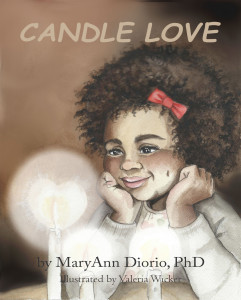Courageous Parenting: Training Up a Child in the Way He Should Go
 I sat in the large courtroom, awaiting my court case involving a minor traffic accident in which a delivery truck had struck my car.
I sat in the large courtroom, awaiting my court case involving a minor traffic accident in which a delivery truck had struck my car.
The judge was hearing another case before mine. I watched intently as a middle-aged mother stood at her adult son’s right side, pleading with the judge.
“But, your Honor, he didn’t mean to do it! He’s really a good boy. Please give him a break.”
The mother wept as she awaited the judge’s verdict.
The judge leaned forward, raised gavel in hand, stern look on his face. “Guilty as charged.” He struck the gavel on the sound block.
Grabbing her son’s arm, the mother wailed. “But, your Honor, you don’t understand. My son had a rough childhood. He didn’t mean to do it.”
Oblivious to the mother’s pleas, the judge struck the block with his gavel a second time. “Case closed. Court dismissed.”
The mother wept bitterly as her son was pulled from her arms and taken away to prison by two courtroom officers. Yet, what she did not realize is that she herself had planted the seed for her son’s imprisonment. All of his life, she had made excuses for his bad behavior. Now, she was witnessing the bitter fruit that seed had produced.
Chinks in the Moral Fence
How can we parents prevent a similar situation in the lives of our own children? How we can prevent our own agony at seeing our children depart from the path of life? One of the best ways is by building a moral fence around our children from the moment they are born or come into our families.
Children go astray because, in some way, whether knowingly or not, their parents compromised the building of the moral fence. While this is tough to swallow, it is the truth. At the same time, this is not to say that older children are not responsible for their actions. Indeed, they are. But when the fence is built properly in the first place, the child will not go beyond its protective limits, not only in childhood, but especially in adulthood. If the fence is built correctly, by the time the child is an adult, he will have reached the point where he does not cross the moral fence for the sole reason that he loves God more than he loves himself.
How do parents compromise in the building of the moral fence for their children? Here are some of the most common ways:
- Overlooking an offense because a child is cute;
- Neglecting to discipline because the parent is tired;
- Being inconsistent in discipline;
- Wanting to be the child’s friend instead of his parent;
- Allowing cultural pressure to over-rule God’s Word.
Any of the above will put a chink in your child’s moral fence.
Keeping Your Child’s Moral Fence Chink-Free
The Word of God promises us this: “Train up a child in the way he should go, and when he is old he will not depart from it” (Proverbs 22: 6). I have experienced the truth of this promise in the lives of my own children, now ages 44 and 40. While I was certainly not a perfect parent, I consistently did seven things that, I believe, helped keep my children’s moral fence chink-free:
1—I prayed without ceasing for my children. When I did not know what to do in a given situation, I asked Holy Spirit for wisdom, and He always gave it to me abundantly.
2—I continually spoke God’s Word over my children. I decreed and declared aloud what God said about them, not what things looked like at the moment.
3—I taught my children to memorize God’s Word. My efforts were reinforced by the Christian school they attended where they memorized a long passage of Scripture every month. To this day, my daughters draw daily upon God’s Word hidden deep within their hearts through memorization.
4—I taught my children to fear the Lord. The fear of the Lord protected them from the fear of man. As a result, they did not compromise God’s Word in the face of temptation.
5—I taught my children to submit to God and to resist the enemy in times of spiritual attack or temptation. Whenever Satan would attempt to draw my children over the moral fence, they resisted him with the Word of God. Even in the most difficult situations, they overcame him with the Blood of the Lamb and the word of their testimony.
6—I taught my children to love, give, and forgive. I purposed in my heart to model this behavior before them, relying totally on Christ to love, give, and forgive through me.
7—I taught my children always to be humble and teachable. When I sinned in my behavior toward them, I confessed my sin before them and asked their forgiveness. When God spoke to me through my children, I received their words with humility and gratitude.
These seven things, done repeatedly and in faith, will produce Godly children who will not stray from the paths of righteousness but who will remain faithful to God, to their parents, and to themselves. What more can a parent ask?
______________________________________________________
Copyright 2018 by MaryAnn Diorio, PhD, MFA. All Rights Reserved.
Four-year-old Keisha has a new baby sister. But Keisha does not want a new baby sister. Keisha is afraid that Mama will love Baby Tamara more than Mama loves her. When Mama shows Keisha three special candles, Keisha learns that there is always enough love for everyone because the more one shares love, the more love grows.

